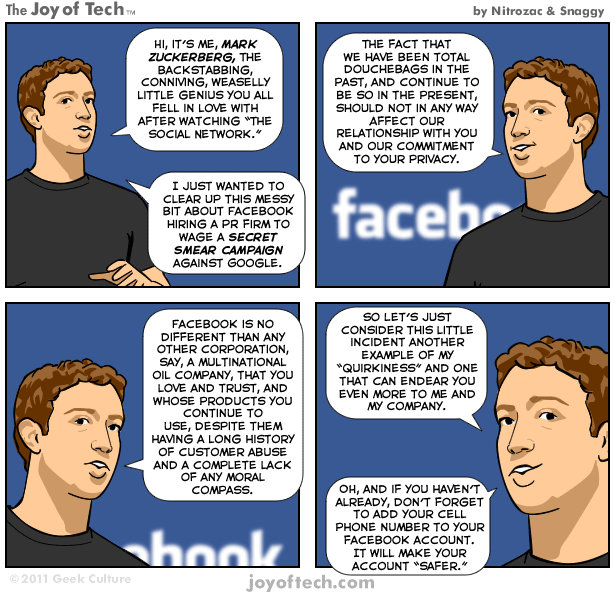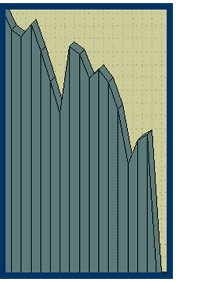Dear Elections Canada,
 This is a typical Canadian,
This is a typical Canadian,
voting without the benefits
of time travel.First of all, thank you for doing this job! I imagine it is somewhat of a thankless task, and I for one appreciate being able to vote, even though Stephen Harper tells me I shouldn’t want to. I certainly don’t begrudge you the hard-earned tax dollars that helps pay your salaries. (Unlike the loonies that got flushed for the G-20 summit.)
I understand that as “an independent, non-partisan agency that reports directly to Parliament” you can’t do much about the elections act, and the fact that a portion of the act prevents the “premature transmission” of election results across time zones. Obviously, this “transmission” could be done by CTV, CBC, hack newspapers, and, of course, individuals using Twitter. So, your threat that anyone announcing results too early could be fined $25,000 and suffer a thorough noodle-lashing is perfectly reasonable. You’re just upholding the law.
A thought occurs: a thorough implementation of this policy may be an excellent way to deal with the massive budget deficit the previous (Conservative) government has left us. In fact, if only 1.2 million Canadians say something about the election results before all the polls are closed, that should cover the $30 billion deficit. (16 million Canadians are on Facebook, more than 300,000 are on Twitter – and many of those will be repeat retweeting offenders – this seems like a reasonable proposition.)
On the other hand, you, like others, may feel this is an excessive response to what may be an innocent mistake. (Not every slack-jawed Facebook user is an Elections Canada Act aficionado, like your correspondent, who has a special drool-wiping gnome to help him with his slack-jawed Facebook use, and several cyborg pixies to help him keep track of the act.)
The answer to this issue is so obvious. I’m surprised it evaded you.
Change the time zones.
All you need to do is pick a Canadian Standard Time. Voila. If we all live in the same time zone, there will be no likelihood of Canadians (innocent and not-so) contravening the act and using their social media to tell their distant relatives and friends what is happening where they live. Granted, it may prove inconvenient to have the sun rise at 5 am in Halifax and 10 am in Vancouver, but we all must learn to make sacrifices. (Except in Toronto. Never there.)
Another (more radical) solution may require some research. My understanding is that time travel is theoretically possible. Perhaps we could somehow move populations through time so that no-one has to experience the horror of knowing what other parts of the country have done before them. Obviously, there will be some expense to this. But we can make it affordable by moving populations based on size and location. Once again, this proposal will mean that nothing will interfere with people living in Toronto – or Montreal and Ottawa (also important) – and their daily activities. Besides, people who live on the coasts should be willing to work with the inconvenience, because they’ve got all those positive ions helping them keep healthy and be happy anyway.
A third (extremely radical) idea, is that you could only release the poll results once all the votes have been counted. This would mean no time travel, nor subjugating the entire country to the diurnal dictates of one time zone (Toronto-time, we could call it), but it may work. You would have to count all the votes, and only release them to the media (and slack-jawed Facebook users, with and without gnome helpers) when ALL the results are in.
Of course, that would mean that people in Toronto would have to go to bed before they knew the results of the election.
Scratch that. Ignore that last idea. Crazy talk.
Yours (in) sincerely,
Mark



 Plato said that in the 4th century BC (back when men were men, women were not, and boys had to be watch the men carefully — kind of like the Catholic Church today.) But I digress; his was only the most recent version of the complaint. There are Egyptian hieroglyphs worried about the same things, thousands of years earlier. I’m sure cave men had the same problem. It’s a fact of human behavior that old people are frightened by young people, because they’ve lost what young people have in excess: vitality and passion.
Plato said that in the 4th century BC (back when men were men, women were not, and boys had to be watch the men carefully — kind of like the Catholic Church today.) But I digress; his was only the most recent version of the complaint. There are Egyptian hieroglyphs worried about the same things, thousands of years earlier. I’m sure cave men had the same problem. It’s a fact of human behavior that old people are frightened by young people, because they’ve lost what young people have in excess: vitality and passion. A public service announcement from The Skwib
A public service announcement from The Skwib